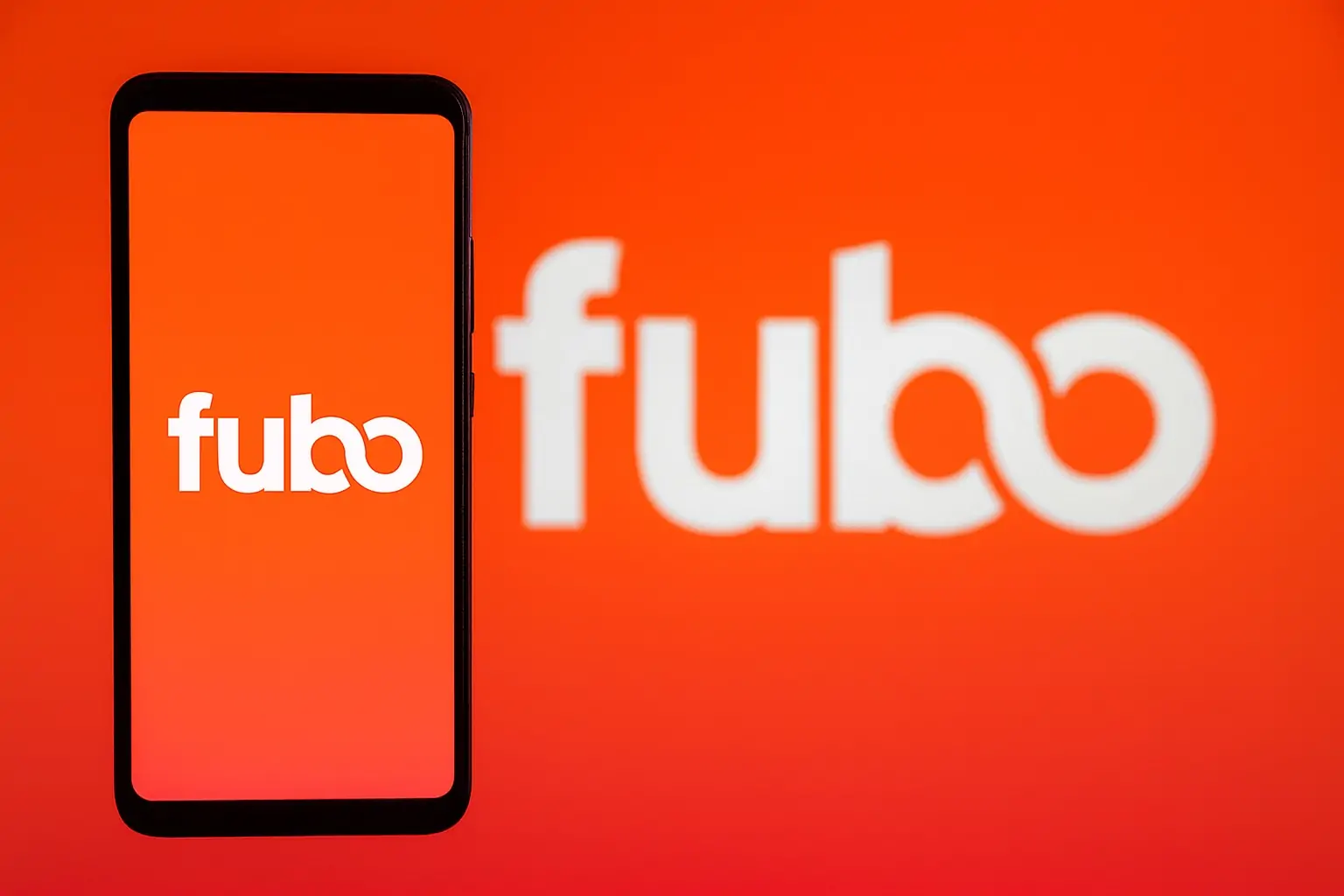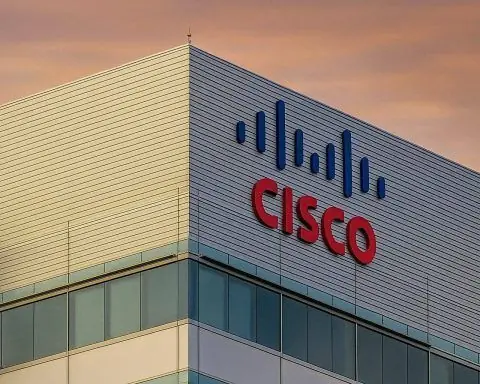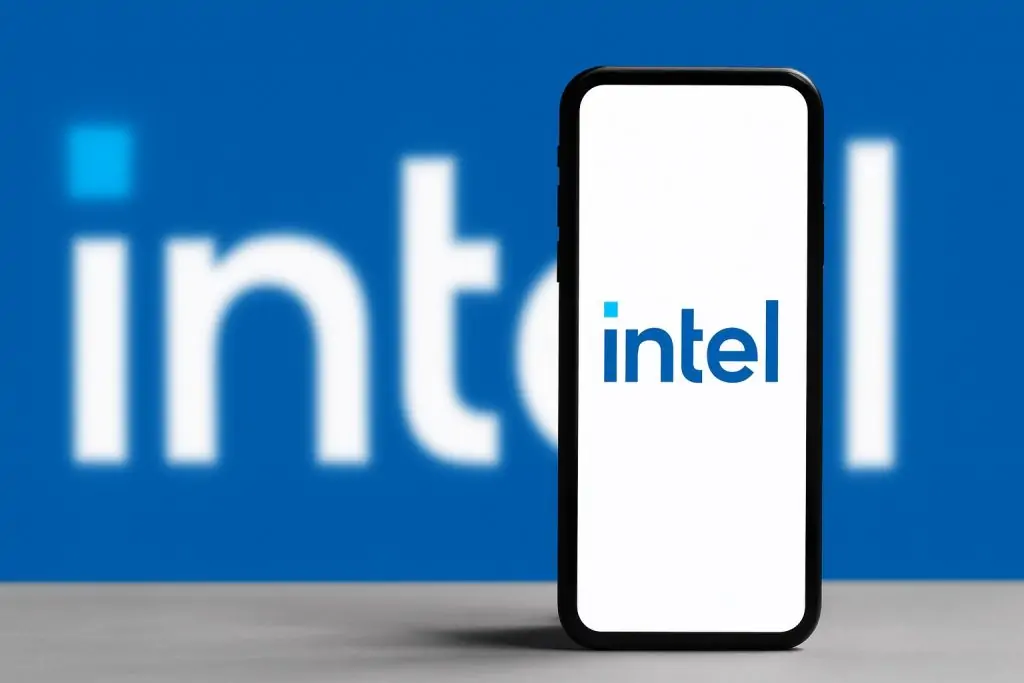- Disney-Fubo Merger Sealed: FuboTV Inc. has officially closed its merger with Disney’s Hulu + Live TV, creating the 6th largest U.S. pay-TV provider with nearly 6 million subscribers investing.com. Disney now holds ~70% of the combined entity, with Fubo’s team continuing to run day-to-day operations investing.com. The merger promises cost synergies in content and ads, and a $145 million loan from Disney in 2026 to bolster growth investing.com investing.com.
- Stock Soars on News:FUBO stock surged ~29% on Oct. 29 after the merger completion announcement investing.com, jumping into the mid-$4 range. The sports-centric streamer’s shares are up over 140% in 2025 year-to-date despite recent volatility ts2.tech. Analysts note the stock still trades below its projected fair value of ~$4.50 per share, leaving a 20% upside if growth plans pan out simplywall.st.
- Sports Streaming Hype: Investor enthusiasm around Fubo is fueled by the booming demand for live sports streaming, especially NFL games meyka.com. Fubo has secured key sports rights (e.g. NFL, UEFA qualifiers) and offers 55,000+ live sporting events via its platform investing.com. Its subscriber count has climbed on the back of these exclusive sports deals, and analysts maintain a “Buy” consensus outlook given this strong niche focus meyka.com.
- Q3 Results Imminent: Fubo will report Q3 2025 earnings on Nov. 3, 2025 before market open, followed by a conference call with CEO David Gandler businesswire.com. Investors are eager for updates on core subscriber trends and progress toward profitability. Fubo’s management has pledged to achieve positive earnings by year-end 2025 through cost cuts and Disney-backed scale ts2.tech, making this earnings report and outlook update especially pivotal.
- Mixed Near-Term Signals: Ahead of the Disney deal news, streaming sector jitters hit Fubo’s stock – it fell ~5.9% on Oct. 26 after Netflix’s weak Q3 results spooked investors ts2.tech. This underscores Fubo’s high volatility. Still, experts say Disney’s investment renders Fubo’s finances “healthier” and adds market credibility to the brand ts2.tech. The big question: Can Fubo leverage its new scale and sports fervor to sustain growth and satisfy investors moving forward?
Disney Alliance Transforms Fubo’s Outlook
FuboTV’s combination with Disney’s Hulu Live marks a game-changing alliance in the streaming wars. The merger, announced in January and now completed in late October, instantly scales up Fubo’s business. The combined entity boasts nearly 6 million subscribers, making it the 6th largest pay-TV provider in the U.S. (behind only giants like YouTube TV) investing.com. Under the deal, Disney took a ~70% ownership stake, while existing Fubo shareholders retain ~30% investing.com. “Together with Disney, we’re creating a more flexible streaming ecosystem that gives consumers greater choice, while driving profitability and sustainable growth,” said Fubo co-founder and CEO David Gandler of the partnership investing.com.
Importantly, Fubo and Hulu + Live TV will continue operating as separate services for now investing.com. Hulu Live remains bundled with Disney+ and ESPN offerings, while Fubo stays focused on its sports-centric package via its own app. However, behind the scenes the companies expect to realize cost savings and revenue synergies – from more efficient content deals to combined ad sales. (In fact, Fubo’s ad sales team will now integrate into Disney’s advertising division to leverage its scale investing.com.) Disney has also committed a $145 million term loan in 2026 to support the venture investing.com, underlining its stake in Fubo’s success.
This alliance emerged in dramatic fashion. Earlier in 2025, Disney and other media giants had planned a new sports streaming service that Fubo perceived as a threat ts2.tech. Fubo launched an antitrust legal challenge, which culminated in a $220 million settlement and a strategic pivot – Disney agreed to fold Hulu Live into Fubo and invest in the company ts2.tech ts2.tech. In one stroke, Fubo gained a powerful patron and a massive infusion of content. “Shares of Fubo soared 141% following the announcement, reflecting optimism about its renewed financial footing and strategic alliance with Disney,” a Nasdaq report noted of the January deal’s impact ts2.tech. One market observer even highlighted that Disney’s backing makes Fubo’s financial position “healthier”, and that Disney’s 70% stake “will undoubtedly enhance the market credibility” of Fubo’s platform ts2.tech. In short, the Disney partnership not only provides content and scale, but also lends heavyweight validation to Fubo’s model.
Stock on a Roller Coaster – But Upside Remains
Fubo’s stock (NYSE: FUBO) has been on a wild ride throughout 2025. After the Disney merger plan was unveiled, shares skyrocketed over 150% in the first half of the year ts2.tech. The rally took FUBO from penny-stock levels to over $4 at one point, rewarding bullish investors who believed in the turnaround. Even long-term holders who endured a steep 5-year loss (-74% per Simply Wall St) saw glimmers of hope as “risk appetite and growth hopes” returned to FUBO’s valuation simplywall.st.
Yet volatility remains Fubo’s constant companion. Just days before the merger’s closure, FUBO tumbled ~5.9% on Oct. 26 after Netflix’s earnings miss cast a cloud over streaming stocks ts2.tech. This dip – part of a broader sector sell-off – “underscores how volatile FUBO remains, despite a 142% YTD rally,” as one market recap observed ts2.tech. In other words, while Fubo’s year-to-date gain is impressive, the stock has been retracing from its highs amid shifting sentiment. At ~$3.5-$3.6 per share prior to the Disney news, FUBO was well below its 52-week peak, suggesting cautious market expectations.
The merger announcement on Oct. 29 flipped the script again. Fubo’s stock surged about 29% in a single day on the deal closing investing.com, bringing shares back into the mid-$4s. Even after this pop, many analysts see more room to run. In a fresh analysis, Simply Wall St noted that analysts peg Fubo’s fair value around $4.50 – roughly 20% above the pre-merger price of $3.59 simplywall.st. This implies investors may still be catching up to Fubo’s improved prospects. Some Wall Street targets range even higher (up to $6.00) according to recent reports meyka.com, reflecting optimism that Fubo’s unique sports-first strategy and the Disney tie-up can unlock further growth. Indeed, the consensus rating on FUBO is “Buy” as of late October meyka.com.
That said, not everyone is unabashedly bullish – Fubo’s path is not without challenges. Bears point to ongoing net losses and cash burn (excluding one-time Disney settlement benefits) and the dilution that comes with Disney owning 70%. The stock’s sharp swings also indicate that short-term traders are active, and any slip in execution could spark another pullback. For now, however, Fubo’s David-and-Goliath storyline in streaming – a once-niche upstart now backed by Disney – has clearly put it back on the radar of growth investors.
Sports Streaming: Fubo’s Winning Play
Why are investors so intrigued by FuboTV in particular? The answer lies in live sports – the last “must-see” content keeping viewers tied to live TV. As cord-cutting accelerates, sports have proven to be the killer app for streaming platforms. Demand for online sports streaming is projected to grow ~23% annually in the coming years, according to industry forecasts meyka.com. Fubo has aggressively positioned itself to ride this wave. The service offers a buffet of sports content, from NFL and college football to international soccer, plus regional sports networks and more. In fact, the newly merged Fubo+Hulu Live entity will carry over 55,000 live sporting events per year – an enormous amount of sports programming that dwarfs most competitors investing.com.
Crucially, Fubo has been locking down exclusive or hard-to-find sports rights. It was originally founded as a soccer streaming platform, and that DNA remains. For example, Fubo recently became the exclusive U.S. home to select UEFA European Championship qualifying matches that aren’t on mainstream channels businesswire.com. It also carries NFL games and has deals with major leagues. These content agreements with top sports leagues – especially the NFL – have made Fubo a go-to destination for sports fans tired of traditional cable meyka.com. “FuboTV’s focus on live sports streaming, its agreements with major sports leagues, and subscriber growth drive investor interest,” one analysis explained meyka.com. In a competitive streaming market, such exclusive sports content is a game-changer for attracting and keeping subscribers meyka.com.
The strategy seems to be paying off. Despite ups and downs, Fubo’s subscriber base has grown to roughly 1.5 million in North America (even exceeding internal forecasts in Q2 cbonds.com), and that was before adding Hulu’s 4.5 million users. The company touts that its user engagement is high, thanks to features like interactive live stats and personalized viewing that “align with rising consumer demand” for a richer sports experience ts2.tech. As long as rabid sports fans continue seeking cable alternatives, Fubo’s niche gives it a fighting chance against larger rivals. Investors see this dynamic in play – as noted, FUBO shares have risen ~96% to ~142% (depending on the timeframe) over the past six months to a year meyka.com ts2.tech, outpacing many peers, precisely because Fubo occupies a unique, sports-first corner of the streaming universe.
Of course, competition is fierce even in sports streaming. Giants like YouTube TV nabbed rights such as NFL Sunday Ticket, which lures some sports subscribers away ts2.tech. Disney’s own ESPN+ is another powerhouse in sports streaming (though notably, Fubo’s inclusion in Disney’s stable could mean more collaboration than competition there). The key for Fubo will be continuing to differentiate with sports-centric innovation and perhaps bundling perks via Disney. If it can keep sports fans on board – a demographic known for loyalty to live content – Fubo stands to benefit from the broader streaming boom in live sports.
Looking Ahead: Q3 Earnings and Beyond
All eyes now turn to Fubo’s upcoming Q3 2025 earnings report on November 3rd. The company has already signaled that this call will include discussion of the Disney transaction’s impact businesswire.com – no surprise, as the merger closed just days before. Investors will be dissecting the numbers for signs of core momentum. In the first half of 2025, Fubo showed improvement: it even posted its first-ever net profit in Q1 (thanks largely to that $220M legal windfall) and achieved positive adjusted EBITDA by Q2 2025 cbonds.com, a milestone for the historically money-losing firm. However, those one-off boosts mask underlying challenges. Subscriber growth had stagnated or slipped slightly earlier in the year when some content was dropped, and Fubo’s Q2 revenue was actually down ~10% year-over-year as the company lapped a sports-packed spring 2024 without a similar bump in 2025 ts2.tech. Management had guided for continued year-over-year declines in Q3 as well, reflecting this turbulence ts2.tech.
The Q3 report will reveal if Fubo’s core trends are stabilizing. Key metrics to watch include subscriber counts (did North America subs hold around 1.2–1.3 million or rebound?), average revenue per user (ARPU), and costs. With football season underway in Q3, Fubo might have seen an uptick in engagement – but it also faced the loss of some advertising inventory, which hit ad revenues earlier (-17% YoY in Q1) ts2.tech. Profitability remains the holy grail. Fubo’s executives, including CEO David Gandler and Chairman Edgar Bronfman Jr., have repeatedly “emphasized [the] commitment to achieving profitability in 2025” ts2.tech. To get there, they’ve been reining in expenses, optimizing channel packages, and now can lean on Disney’s deep pockets for breathing room. Analysts will be looking for any updated guidance on EBITDA or cash flow breakeven timelines.
Beyond the quarterly numbers, the strategic outlook is what truly excites Fubo’s bulls. With the Disney partnership sealed, Fubo enters a transitional period heading into 2026. Integration of Hulu Live (even as a separate brand) will be a complex process – from technical integration to aligning content offerings – and Fubo will need to execute smoothly to keep customers from either platform from churning. There’s also the dilution factor: Fubo’s existing shareholders now own a minority stake, and Disney will rightfully have significant influence. This raises questions about Fubo’s long-term independence and strategy. On the flip side, Disney’s involvement could open doors: more marquee content (perhaps additional ESPN or ABC sports content for Fubo), cross-promotions with Disney’s services, and general confidence in Fubo’s longevity. By acquiring Hulu Live’s subscribers, Fubo drastically reduced its need to spend heavily on marketing for subscriber growth, which could accelerate the path to profit.
Industry experts suggest patience. “Fubo is essentially in a transition period until the Disney transaction’s benefits fully kick in,” one analysis noted, advising investors to temper short-term expectations ts2.tech. In the near term, Fubo still faces headwinds like the soft advertising market and heavyweight competitors. But if one looks out a year or two, the picture could be dramatically different. “If all goes as planned, FuboTV by 2026 will be a very different company: a scaled-up contender in the streaming TV wars, with Disney as a majority owner,” observed TechStock²’s streaming industry report ts2.tech. In that scenario, Fubo might shed its penny-stock past and be viewed as a legitimate mid-sized player alongside the likes of Sling, Hulu Live, and YouTube TV.
Bottom Line: Fubo’s story in late 2025 is one of a bold turnaround gambit. The company doubled down on sports streaming just as the appetite for live sports online is exploding, and it scored the ultimate strategic partner in Disney. This has translated into newfound investor confidence – evident in the stock’s recent surge – but now Fubo must prove that confidence is justified. The next catalyst is just around the corner with Q3 earnings and the first hints of how the Hulu Live combo might shape the business. If Fubo can show continued subscriber enthusiasm and a roadmap to sustainable profits, the recent rally might just be the start of its next climb. If not, the stock’s notorious volatility could resurface. For now, many are betting that Fubo, the sports-streaming underdog, is finally ready to play in the big leagues – with Mickey Mouse as its lineman.
Sources: FuboTV/Disney press release investing.com investing.com businesswire.com; TechStock² (ts2.tech) analysis ts2.tech ts2.tech ts2.tech; Simply Wall St via Yahoo Finance simplywall.st; Meyka/Global Market Insights meyka.com meyka.com; FuboTV Investor Relations businesswire.com.









